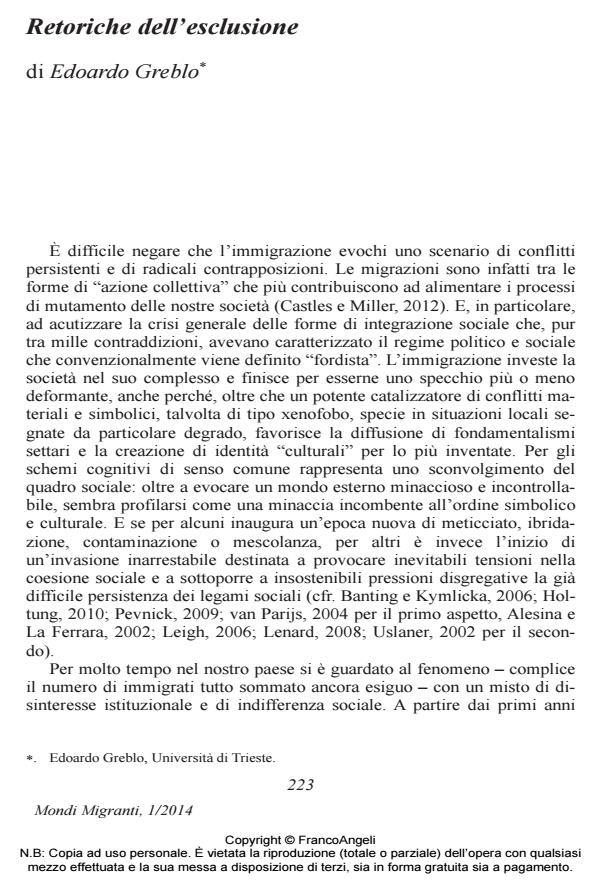Rethoric of Exclusion
Journal title MONDI MIGRANTI
Author/s Edoardo Greblo
Publishing Year 2014 Issue 2014/1
Language Italian Pages 0 P. 223-242 File size 90 KB
DOI 10.3280/MM2014-001013
DOI is like a bar code for intellectual property: to have more infomation
click here
Below, you can see the article first page
If you want to buy this article in PDF format, you can do it, following the instructions to buy download credits

FrancoAngeli is member of Publishers International Linking Association, Inc (PILA), a not-for-profit association which run the CrossRef service enabling links to and from online scholarly content.
It is hard to deny that immigration recalls a scenario of radical opposition. According to a popular common sense, a country that is forced to "endure" the clash with immigration it’s doomed to attend to the of the people as a nation - and then of the democratic citizenship. Immigration, throwing into crisis the supposed homogeneity between citizens living into the same territory, would transform the sources of the cultural unit into latent cases of dispute or open conflict. Therefore, every democratic country has the right to put barriers at the frontiers, in order to avoid that it may become a destabilizing factor for the host society. But which is the stakes in this rhetorical exclusion for our "democratic" societies? The point is that this deal directly with the legitimacy and the boundary of the pluralism of values and political identities.
Keywords: Immigration, exclusion, values, social cohesion, pluralism.
Edoardo Greblo, Retoriche dell’esclusione in "MONDI MIGRANTI" 1/2014, pp 223-242, DOI: 10.3280/MM2014-001013